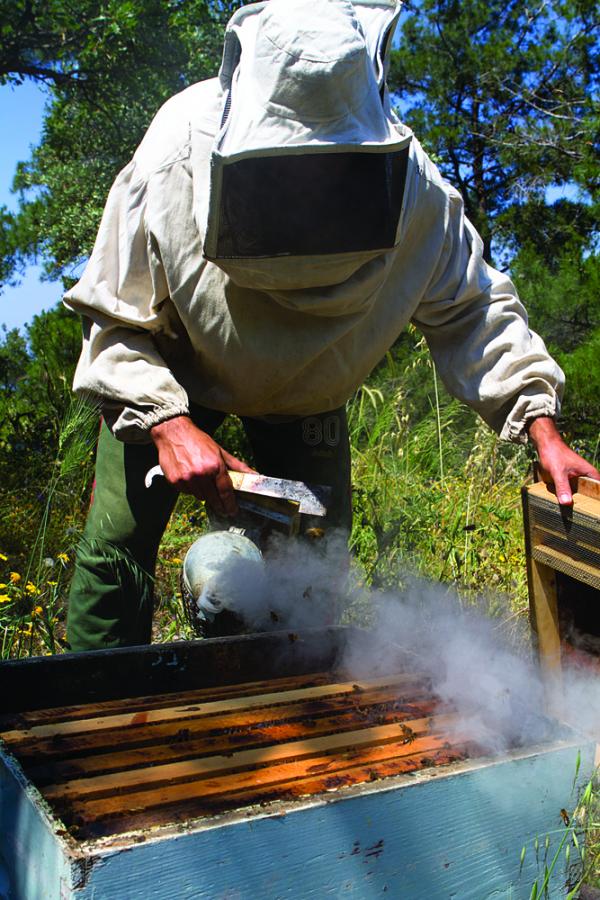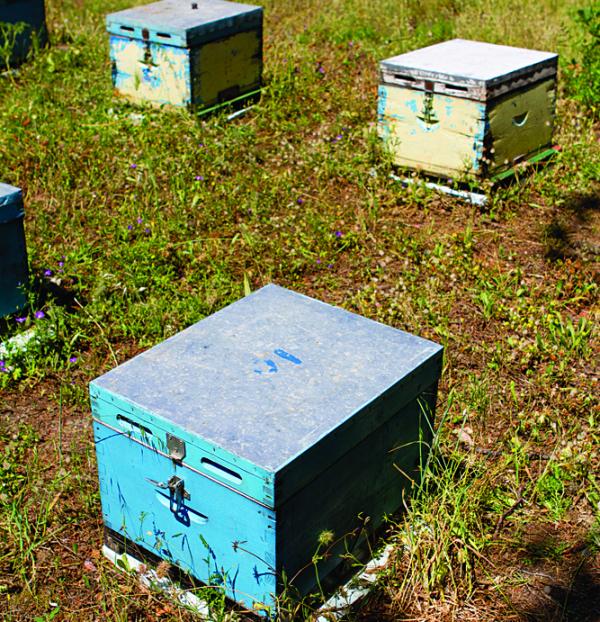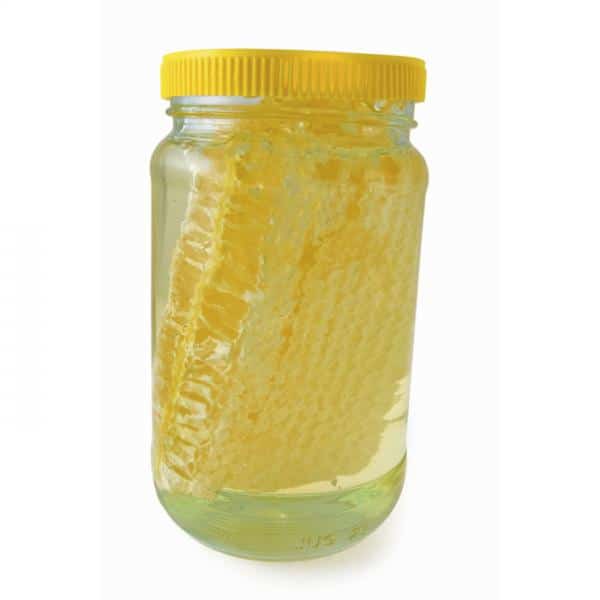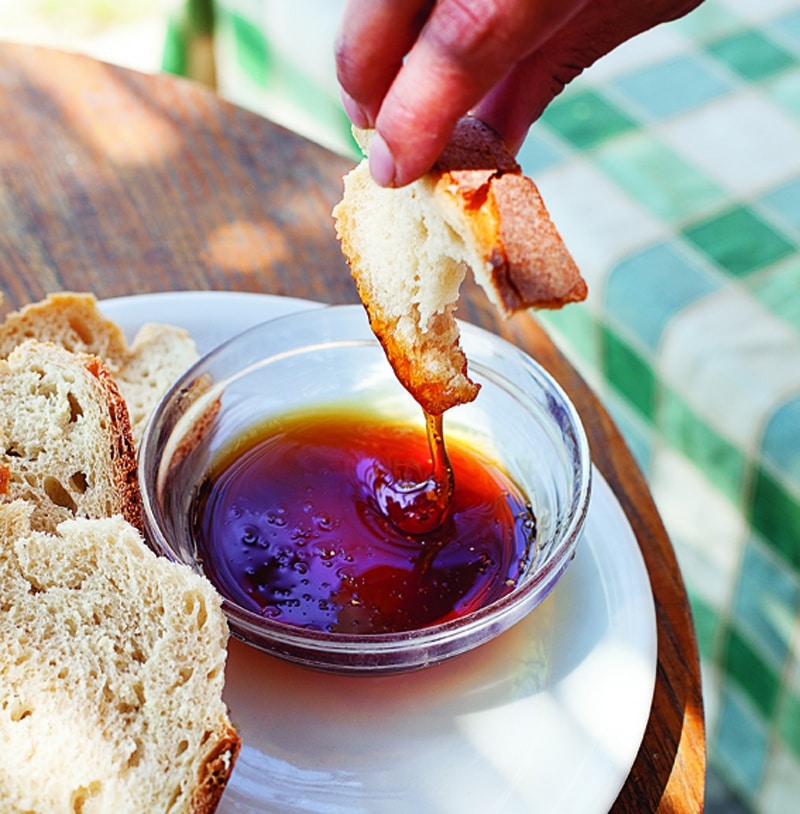Taste Greece: The Healthiest Honey
We may receive a commission on purchases made from links.
Is it my imagination, or was that an angry buzz?
"Stay near the smoke!" I'm told. "If they swarm, run and cover your head and mouth with your shirt!" The Greek beekeeper is telling me this through the safety of a mesh veil on his protective suit. I'm listening, bare-armed and in shorts. Is this whole thing just a hoax? Somehow, my quest to find a lifesaving honey (which started in a quiet, safe Mediterranean shop) has led me here, to a field, among millions of bees.
I'd read that in New Zealand, manuka honey is used to treat wounds in place of antibiotic ointment. Honey in the Middle East is used to banish intestinal parasites. It's said to kill bacteria and help with environmental allergies, maybe even help prevent cancer.
But not all honey is created equal. In a study at the University of Cagliari, Italy, the variety with the most antioxidants was strawberry-tree honey. A Greek island where I'm traveling is a top producer of this hard-to-find stuff. My plan was to bring some back to stave off everything from heart disease to toe fungus.

Photo by: Jon Whittle
I speak no Greek, so when I enter a Lipsi Island cafe to find strawberry-tree honey, I mount a humiliating charade involving buzzing and smacking of lips.
"Ah, meli," the woman says. And in true Greek-island style, she locks the door of her cafe and leads me to a bakery where another woman produces a jar of light honey, speaking in hesitant English.
"I took now morning," she says. "Bees take from flowers. Good for stomach." I'd done my reading. Wildflower honey has digestive benefits. So for 10 euros I buy a kilo. It's still warm from the sun, so I try it on fresh bread with feta cheese. It's perfumey, but not real sweet. And it isn't strawberry-tree honey. I move on to the island of Ikaria, where I see bee boxes that appear to be growing out of the countryside. I stop at a village shop and go through my pantomime for the owner. He phones a young couple who speak English. They also farm honey and want to meet me.
Lina Tsingerlioti and Lefteris Trikirotis are hippies who moved to Ikaria from Thessaloniki three years ago to start a small beekeeping operation. They agree to take me to their hives, set in a pine forest. Before approaching the droning boxes, they light their smudge pots and climb into their suits, leaving me semi-naked. With bees crawling up her arms, Lina casually educates me.
"Honey in supermarkets is not real honey. The bees are fed sugar instead of relying on local fauna. You lose nutrition." Lefteris starts to name a list of tree honeys in Greece — pine, oak, fir, thyme, orange. "The one that is most rare is the strawberry-tree honey."
"That's the one. Can you get me some of that strawberry-tree stuff?"

Photo by: Jon Whittle
"No, it is very rare, and bitter. You probably won't like it." I start pleading. "Please?" I can tell they have some. Hippies always have the good stuff. Lefteris looks at Lina. I see a trace of a nod. "OK. We have some at home." So later, I drive deep into the green flanks of the island and arrive at their stone farmhouse to do the deal. "Taste this first," Lina says, giving me thyme honey. It's light and herbal, with a sweet, tangy taste. Also fabulous if I were suffering from cholera or an E. coli infection. Then I test the pine honeydew honey, made by bees collecting the waste of an insect that eats pine sap. Surprisingly tasty for bug excrement. I feel it killing some free radicals lurking in my body.
Finally Lefteris opens a jar of a murky substance. Strawberry-tree honey. The Holy Grail of honeys. Raw and rare. "The strawberry tree blooms only for a short time in the fall," he says. It comes out of the jar more like bacon fat than honey. I shove a spoonful into my mouth. And ... it's hideous. Way beyond bitter. I motion for some water.
"You still want to buy?" asks Lefteris, laughing for the first time since we met. "Um, got a jar of that insect-crap stuff instead?"

Photo by: ThinkStock
THE HEALTHIEST HONEYS
Linden Flower Honey
It's light and not as sweet as honey out of the plastic bear. It is said to have sedative properties and is used to treat anxiety and insomnia.
Buckwheat Honey
You can't miss this variety because the color is so dark. Tastes like molasses, and is supposed to be heavy in iron and rich in antioxidants.
Acacia Tree Honey
Pictured left, it's good for coughs and colds because it's said to be an anti-inflamatory for the respiratory system. It's also used to clean the liver and regulate digestion.
